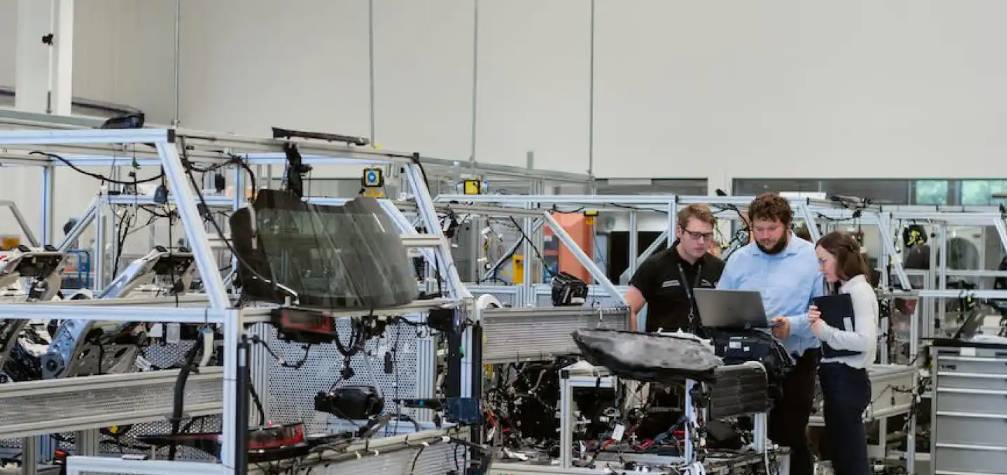AI and Robotics in Car Manufacturing: A Closer Look
5 min read
01 May 2025
The automotive manufacturing industry has witnessed a profound transformation in recent years, driven by the integration of artificial intelligence (AI) and robotics. These cutting-edge technologies have revolutionized the way cars are built, enhancing efficiency, precision, and quality. In this article, we take a closer look at the pivotal role of AI and robotics in car manufacturing, exploring their applications, benefits, and the future they promise.
The Confluence of AI and Robotics
Artificial intelligence and robotics have converged to create a paradigm shift in car manufacturing. AI-driven robots are now capable of performing a wide range of tasks, from welding and assembly to quality control, with unprecedented accuracy and speed, revolutionizing the industry.

Manufacturing and Assembly
Robotic arms equipped with AI algorithms have become indispensable in modern car manufacturing plants. They can perform complex assembly tasks with precision, consistently producing high-quality vehicles. The synergy of AI and robotics ensures a seamless workflow, reducing human error, and boosting productivity.
Supply Chain Optimization
AI is not only reshaping the factory floor but also optimizing supply chain management in the automotive industry. Advanced algorithms predict demand, optimize inventory levels, and even plan efficient transportation routes. This results in substantial cost savings, reduced waste, and a faster response to market changes.
Quality Control and Inspection
Ensuring the quality of vehicles is paramount, and AI-driven systems with advanced computer vision capabilities are leading the way. These systems can meticulously inspect vehicles for defects and inconsistencies, identifying even the slightest imperfections. This level of precision significantly contributes to improved vehicle safety and heightened customer satisfaction.
Personalization and Customization
AI is empowering greater personalization and customization of vehicles. Customers now have the freedom to choose from a wide range of options, and AI-driven systems ensure that these choices are implemented precisely during assembly. This level of personalization enhances customer satisfaction and fosters brand loyalty.
Predictive Maintenance
AI plays a pivotal role in predictive maintenance, a game-changer for the industry. Sensors and AI algorithms continuously monitor the health of manufacturing equipment and robots. Predictive maintenance schedules ensure that machines are serviced before any potential breakdowns occur, effectively reducing downtime and further increasing efficiency.
Challenges and Workforce Impact
While the benefits of AI and robotics are undeniable, they also bring about certain challenges. The workforce in car manufacturing is undergoing a significant transformation, with an increasing demand for technical skills. Companies need to invest in comprehensive employee training programs and proactively address the impact of automation on employment to ensure a smooth transition.
The Future of Car Manufacturing
The future of car manufacturing lies in the continued integration and advancement of AI and robotics. These technologies will become even more sophisticated, enabling tasks that were previously unimaginable. As electric and autonomous vehicles gain prominence, AI and robotics will remain central to their production, shaping the cars of tomorrow with unrivaled precision and ingenuity.
Conclusion: Driving Innovation Forward
AI and robotics have not just become tools but essential partners in the car manufacturing process, fundamentally transforming the industry. They are driving innovation, efficiency, and a new era of automobile production. As the automotive industry continues to evolve, AI and robotics will remain at the forefront, reshaping the cars of tomorrow with precision and ingenuity that knows no bounds.


